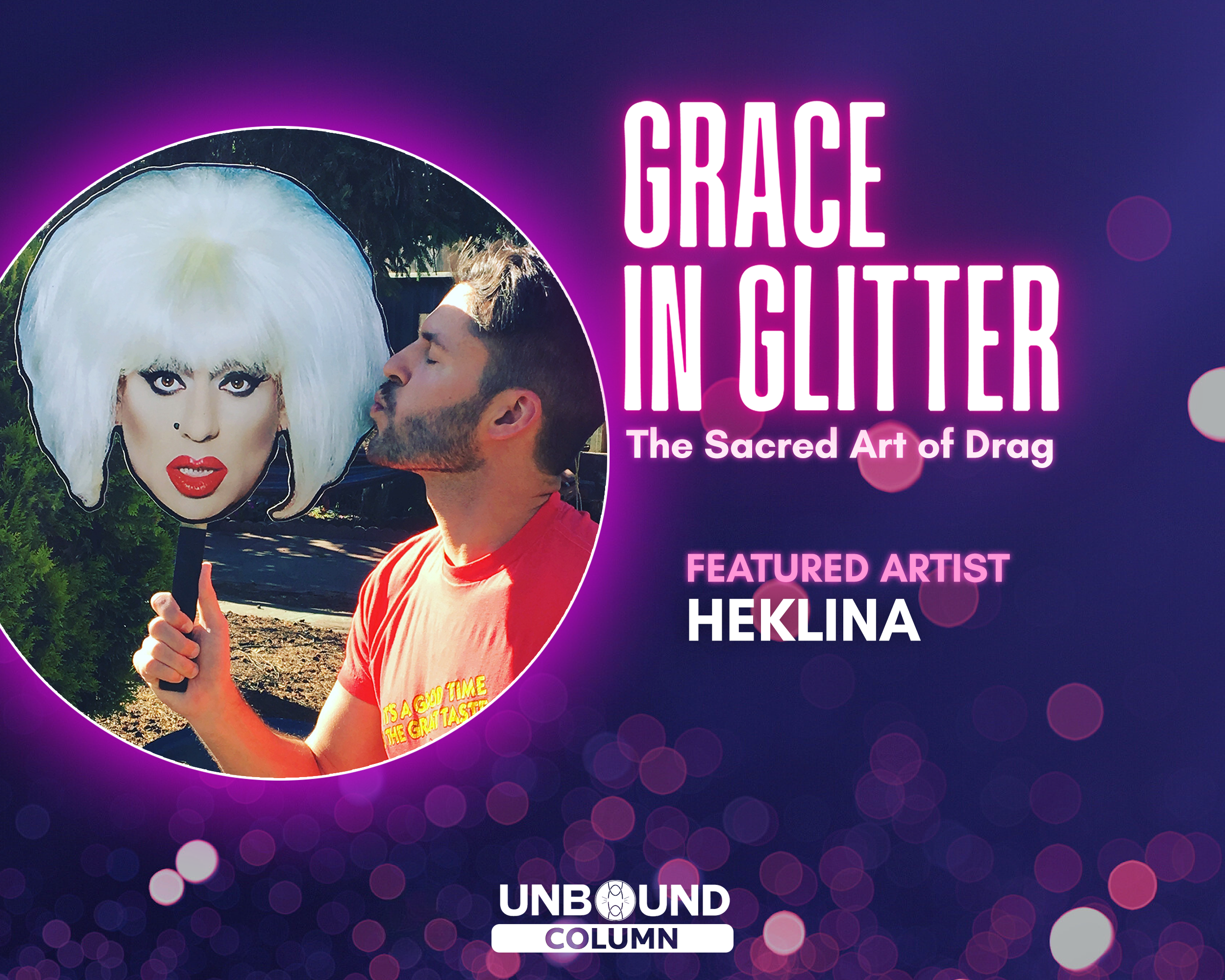Hysteria as Awakening: Joel’s Journey to Ecstasy
The opening salvos of Joel’s prophecy are marked with erratic hysteria.
“Hear this,…give ear, all inhabitants of the land: what the cutting locust left, the swarming locust has eaten. What the swarming locust left, the hopping locust has eaten, and what the hopping locust left, the destroying locust has eaten.”1
Emphasizing his lament with poetic reprisal, Joel echoes the at times inarticulate cries of Jeremiah’s lamentations. The devastation is widespread. Where one travesty ended, another began, and so on and so forth. The land, the nation, is ravaged. In quick succession, Joel begins to lay out the horrors. Crying out, lamenting, screaming, sheer hysteria is all that is left. Too much has been lost to be formal. We have come too far down the ordeal path to perform niceties. We’ve endured and are enduring too many traumas to remain wedded to acceptable rhetorical flourishes of established and approved homiletical traditions. Perhaps a time for dialogue and diplomacy will return, but the moment for that has passed, for everything is devastation. But more than just the agony of the affliction we face, we also must persist through the insolence of those who refuse to realize how outrageous our condition actually is. Dialogue cannot take place in the absence of the recognition of deep harm and abject agony.
“Wake up, you drunkards, and weep; and wail all you wine-drinkers, over the sweet wine, for it is cut off from your mouth” 2
Where Jeremiah’s confessions are structured around “imminent disaster”3, thus locating anguish about and soon and coming devastation, Joel’s prophecy arises from the embers of ground zero. The disaster is no longer imminent, it has passed, and yet the drunkards remain, as they were in Jeremiah’s day, unaware or unwilling to aware themselves of reality. The outlandishness of their unawareness summons the prophetic hysteria in Joel’s body, commanding attention not simply to Joel’s personal or intimate locality but Joel’s body as an embodiment of the nation.
Rhiannon Graybill’s treatment of hysteria in Are We Not Men? Unstable Masculinities in the Hebrew Prophets is incredibly extensive, especially the complex and often disturbing ways hysteria is gendered and used as an abusive tool to silence and delegitimize. However, her particular note about hysteria’s relationship to embodiment and knowing or awareness is crucial to the movements taking place in Joel:
“Crucially, hysteria is a disturbance that makes itself known in sound. The early hysterical patients cry, murmur, expound in foreign languages, click their tongues, or cannot speak at all…There is an analogous continuity between these forms of speech and Jeremiah’s Confession. In both cases, hysterical speech forces attention on the body; it directs attention as well to the ambiguities and moments of weakness in ordinary language…crying out, especially in pain, is also a key feature of hysterical speech.”4
Something, theoretically, has to break. That is to say. Something must interrupt the status quo, break free, and command the room. With eyes resolutely fixed upon distraction, and bodies numb to their own material condition, something must, like lightning, strike – and in doing so summon witness.
Witness to self and to society – to community.
Joel’s contemporaries are too drunk to even recognize that the good, sweet wine, is gone. Even if it is simply the silence in the face of tragedy – the turning away from evil or choosing inebriation to not have to engage the harrowing pain of reality. Joel’s listeners appear to have chosen numbness instead of acknowledgement. They have chosen neglect, instead of witness.
“WAKE UP, DRUNKARDS, AND WEEP”5 Joel commands – and in the succeeding verses the prophet continues his invitation into hysteria:
“Lament like a virgin dressed in sackcloth…be dismayed, you farmers…wail, you vinedressers…lament, you priests…wail, you ministers of the altar.
To you, O LORD, I cry…blow the trumpet in zion; sound the alarm in the land – tremble for the day of the LORD is coming.”6
This is a critical juncture for the prophet, everything hinges on these exhortative invitations. The only way to the liberation later promised, is through the ordeal and the pain – “there is a pain in the breaking [hysteria] entails”7. The body, numbed, must be shocked into feeling again. Sackcloth and lamentation, wailing and fasting.
Holding vigil through the night. These commands from the prophet to the people to participate in a ritualized performance of their own suffering are an invitation into awakening, an awakening to their own bodies. The pain was already there. The invitation was not into a new pain or a manufactured suffering. No. This was a summons to the softness and vulnerability necessary to enter into the often arduous yet liberating healing process.
Liberation begins at the locus of our pain.
Later in the text, Joel will extend an invitation away from hysteria towards ecstasy – with promises of plenty and bounty, restoration and pleasure8. In that invitation a promise exists, too, for the very queering, or liberating, of the prophetic tradition –
I will pour out my spirit on all flash; your sons and daughters shall prophesy, your old men shall dream dreams, and your young men shall see visions. Even on the male and female slaves, in those days, I will pour out my spirit.9
But achieving this requires – necessitates disturbance.10 As Graybill writes, “the body is fundamental to the transmission of the prophetic message, and to the very practice of prophecy. And this body must be disturbed – sometimes displaced, sometimes disabled, sometimes transformed – for prophecy to succeed.”11 And if the end goal of Joel’s prophetic calling is to achieve the liberative, abundant vision of his later declarations, then liberating his community, the nation, from their drunken slumber is a chief necessity.
The cost? The release. The breaking. The awakening. Ecstasy cannot be achieved without being present to the body. Waking up to our bodies can often bring with it a flurry of emotions, and stories, and messages hidden to us for far too long. The weight of pain and the nourishment of pleasure reside there. Accessing it begets liberation.
There is a transition in Joel Chapter 2, from verse 17 to verse 18. The beginning of Joel 2:18 reads, “Then the LORD became jealous for his land. And had pity on his people.” This transition implies that the invitation into the healing journey, the hysteria of lament and acknowledgement and accountability was adhered to.
The prophet was believed. The prophet, as representative of the body of the nation, was believed.
The body was believed.
And thus is the awakening to the body, and the believing of the story it had to tell, that Divinity was made present and the showers of bounty and ecstasy showered down on the people.
Awaken, thus, to your bodies, and may it be that in doing so they are believed, and the long awaited healing and nourishment comes to you, swiftly.
1 Joel 1:2, 4 NRSV
2 Joel 1:5 NRSV
3 Graybill, 72
4 Graybill, 82
5 Joel 1:5 Emphasis mine
6 Joel 1:8, 11, 13, 19, 2:1
7 Graybill 126
8 Joel 2:18-29
9 Joel 2:28-29
10 Graybill, 124
11 Graybill, 125

Michael Vazquez (he/him) is the Founding Partner of The Maiden Group, a social impact agency & research and consulting firm facilitating partnerships that serve as a vanguard against autocracy and in pursuit of an inclusive democracy. A public theologian and organizing, communications and policy strategist, Michael also currently serves as an Advisor at Public Private Strategies. Michael formerly served as the Religion & Faith Director at the Human Rights Campaign, Senior Communications Strategist at the USAID Office of Faith Based and Neighborhood Partnerships, and Founder of Brave Commons. With his roots in community organizing, Michael has served across civil society on a diverse policy agenda in pursuit of creating a more just and equitable society. Throughout all his work, Michael has supported secular civil society, faith-based organizations, and political and philanthropic leaders in understanding the growing threat of Christian Nationalism and other autocratic movements both in the U.S. and abroad, and helped craft strategies to combat extremism and defend democracy.
During the 2020 Presidential Campaign, Michael served as an advisor to the faith engagement team for the Biden-Harris Campaign, and during his time at the Human Rights Campaign, he worked alongside the Biden Administration on pro-democracy initiatives, LGBTQ policy, COVID-19 pandemic response, as well as housing and poverty elimination policy. As a member of the Public Private Strategies Team, Michael has supported a wide-ranging portfolio, including supporting the Public Private Strategies Institute where he serves as an advisor to the Emerging Voice Table, a multidisciplinary funding table that aims to engage and empower voices (small business, rural, and faith) not traditionally engaged in public policy, primarily on a broad range of tax policies, including the Child Tax Credit and the Earned Income Tax Credit. At Public Private Strategies, Michael previously directed the development and launch of Build Up Local – an online tool to empower and connect business owners of color with contracting and grant opportunities related to the Bipartisan Infrastructure Law.
Michael serves as an advisor to Auburn Seminary, partnering closely on the development of the National Faith Table, an interfaith ecosystem of faith-based organizations and faith leaders engaged on shared policy and pro-democracy issues. He has also served as a communications and organizing consultant to the Center for Faith, Justice, and Reconciliation, Curriculum Associates, The Expectations Project, Faith for Justice, and Faith Forward (formerly Faith 2020). In 2020, Michael was a District of Columbia delegate to the Black National Convention convened by the Movement for Black Lives and in 2021, Michael was named by the Center for American Progress as a “Faith Leader to Watch”. Michael holds a Masters in Theological Studies from Duke University’s Divinity School, and his work has appeared in National Catholic Reporter, Georgetown University’s Berkley Forum for Religion, Peace, and World Affairs, and USAToday.



Unbound Social